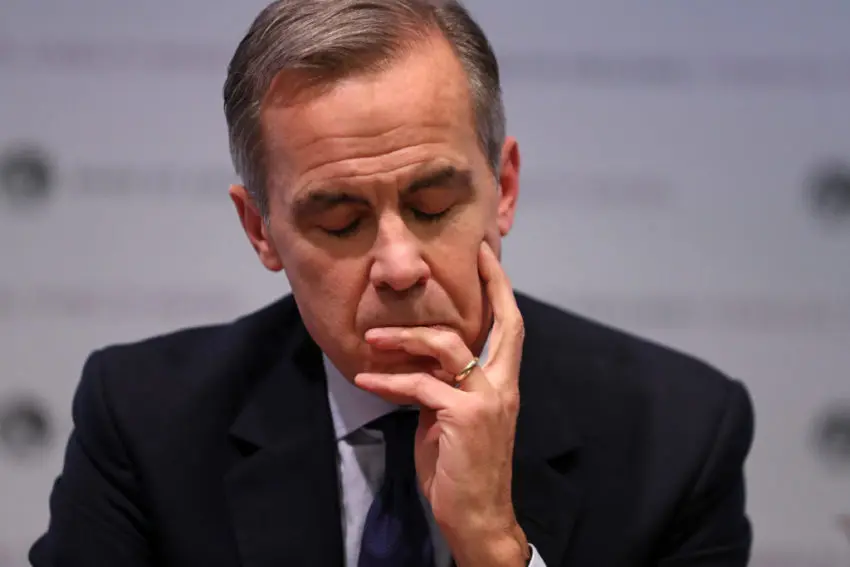The Bank of England (BoE) has warned that Brexit uncertainty is to see a growth slump to its lowest level for a decade, the Bank has held interest rates at 0.75%.
Growth forecast has been slashed to 1.2%, the lowest since 2009 when the economy contracted by 4.2%, the Bank has also cut their outlook for 2020 to 1.5%.
The Bank’s forecast has implied that the UK has a one-in-four chance of heading into a recession, as the economic forecast has been cut to 1.2% as Brexit has seriously affected the economy.
Consumer confidence has “weakened significantly” as Brexit woes have also seen businesses freeze spending, the Bank signalled rates may not rise until the second half of 2020.
The Monetary Policy Committee (MPC) voted unanimously to keep interest rates unchanged.
The pound dipped over the news to 0.6% vs the US dollar at 1.285.
The BoE said in its minutes, “Since the Committee’s previous meeting, key parts of the EU withdrawal process had remained unresolved and uncertainty had intensified.
“Businesses had appeared increasingly to be responding to Brexit-related uncertainties and there were signs that those uncertainties might also be affecting household spending and saving decisions.”
Simon Harvey, Market Analyst at Monex Europe said, “The Bank of England would have had to mimic the great Houdini to escape the current quandary, but the outlook is not as bleak as the headlines suggest.
“The unknown future of the UK-EU relationship was reflected in the unanimous decision by the Monetary Policy Committee to keep rates on hold and the downward revision of its growth forecast for 2019 from 1.7% to 1.2%. Although, Carney stated that the central bank’s outlook is not all doom and gloom.
“The 2019 outlook from the UK central bank, that predicts growth in 2019 to be the worst since the 2009 recession, reflected signs of Brexit uncertainty materialising in business investment and the housing market. However, Carney stressed that the bank’s forecasts were conservative, and risks remain to the upside.
“With the labour market remaining tight, and job-to-job flows showing that the worker remains confident changing jobs to seek higher wages, domestic inflationary pressures are firming. This was evidenced by the upward shift in the Monetary Policy Committee’s inflation outlook and should prove sufficient for immediate intervention by the Bank of England if a soft Brexit deal is passed.
“Calming tones struck in the press conference helped to soothe fears that were immediately reflected in sterling’s knee-jerk reaction but did little to stop the market downgrading its 50/50 estimate of a rate hike in 2019.
“Going forward the ball remains in Brexit’s court and Carney’s stressing of upside potential reiterates how much is at stake for the UK economy as it starts to show symptoms of the Brexit beating.”


